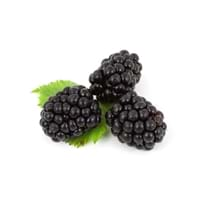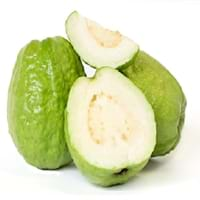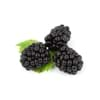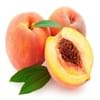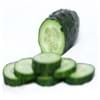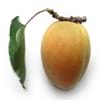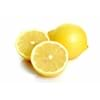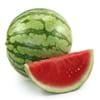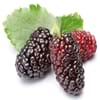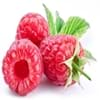Health Benefits
Cancer prevention, Heart care, Increases metabolic rate, Reduces stress, Treatment of dysentary, Treatment of skin Diseases
Cancer prevention, Diarrhea treatment, Prevents constipation, Scurvy treatment, Treatment of dysentary
General Benefits
Digestive aid, Maintains healthy cholesterol level, Strengthens bones
Controls blood pressure, Cures cough, Improves eye vision, Maintains healthy cholesterol level, Treatment of common cold
Skin Benefits
Hydrates skin, Skin rejuvenation, Skin revitalization
Anti-aging benefits, Brightens and lightens complexion, Hydrates skin, Treatment of skin diseases
Hair Benefits
Promotes longer and healthier hair
Prevents hair loss
Allergy Symptoms
Facial muscle tension, Pressure in sinus, Respiratory congestion, Runny nose, Sneezing, Tingling sensation in wrist and face
Breathing difficulty, Coughing, Runny nose, Sneezing, Swelling of mouth, tongue or lips, Wheezing
Side Effects
Nausea, Vomiting, Might cause change of urine color
Hair thinning, Nail thinning, Skin problems, Tooth decay, Weakness, Possibly unsafe during pregnancy
Best Time to Eat
Best if taken as a breakfast (or empty stomach), As a snack in the late afternoon, Don't consume at night and before bed, Eat the fresh ones, avoid mixing with any other foods, don't eat after meal., Morning time (before lunch)
As a snack in the late afternoon, Don't consume at night and before bed, Eat the fresh ones, avoid mixing with any other foods, don't eat after meal., Morning time (before lunch)
Vitamin B5 (Pantothenic Acid)
Vitamin C (Ascorbic Acid)
Vitamin K (Phyllochinone)
Calories in Fresh Fruit with Peel
Calories in Fresh Fruit without Peel
Not Available
Not Available
Calories in Frozen Form
Not Available
Calories in Pie
Not Available
Type
Berry
Tree fruit, Tropical
Season
Spring, Summer
All seasons
Varieties
Prime Ark, Prime Jim, Illini Hardy, Kiowa, Shawnee, Apache, Arapaho, Chester, Hull, Natchez, Navaho and Triple Crown and Von
Lucknow 49, Allahabad Safeda, Chittidar, Harijha, Apple guava, Hafshi, Arka Mridula and Allahabad Surkha
Color
Purplish black
Green, Pink, Yellow
Inside Color
Magenta
White
Taste
Juicy, Sweet
Sweet-Sour
Origin
Asia, Europe, North America, South America
Central America, Mexico, South America
Soil Type
Well-drained
Loam, Rocky, Sandy
Climatic Conditions
Dry, Warm to hot climate
Sunny
Facts about
- There are around 2000 varieties of blackberries throughout the world.
- 80-85 degrees is the ideal temperature for its production.
- Leaves of blackberry tree are used to treat sore throats and mild inflammation of the gums.
- The black pigment in Guava leaves is used for textile applications.
- Guava leaves are used to make tea.
- Oils extracted from guava seeds are used in various cosmetics.
- Guava wood is used for decorative purposes.
Top Producer
United States of America
India
Other Countries
China, New Zealand, Serbia, South Africa
China, Indonesia, Mexico, Nigeria, Pakistan, Philippines, Thailand
Top Importer
United States of America
Canada
Top Exporter
Mexico
India
Botanical Name
Rubus Fruticosus
Psidium guajava
Synonym
Rubus Millspaughii or Rubus Laciniatus
Not Available
Subkingdom
Tracheobionta
Tracheobionta
Division
Magnoliophyta
Magnoliophyta
Class
Magnoliopsida
Magnoliopsida
Family
Rosaceae
Myrtaceae
Species
Rubus fruticosus
Psidium guajava
Generic Group
Rose
Myrtle
Difference Between Blackberry and Guava
We might think that Blackberry and Guava are similar with respect to nutritional value and health benefits. But the nutrient content of both fruits is different. Blackberry and Guava Facts such as their taste, shape, color, and size are also distinct. The difference between Blackberry and Guava is explained here.
The amount of calories in 100 gm of fresh Blackberry and Guava with peel is 43.00 kcal and 68.00 kcal and the amount of calories without peel is Not Available and Not Available respectively. Thus, Blackberry and Guava belong to Low Calorie Fruits and Low Calorie Fruits category.These fruits might or might not differ with respect to their scientific classification. The order of Blackberry and Guava is Rosales and Myrtales respectively. Blackberry belongs to Rosaceae family and Guava belongs to Myrtaceae family. Blackberry belongs to Rubus genus of Rubus fruticosus species and Guava belongs to Psidium genus of Psidium guajava species. Beings plants, both fruits belong to Plantae Kingdom.
